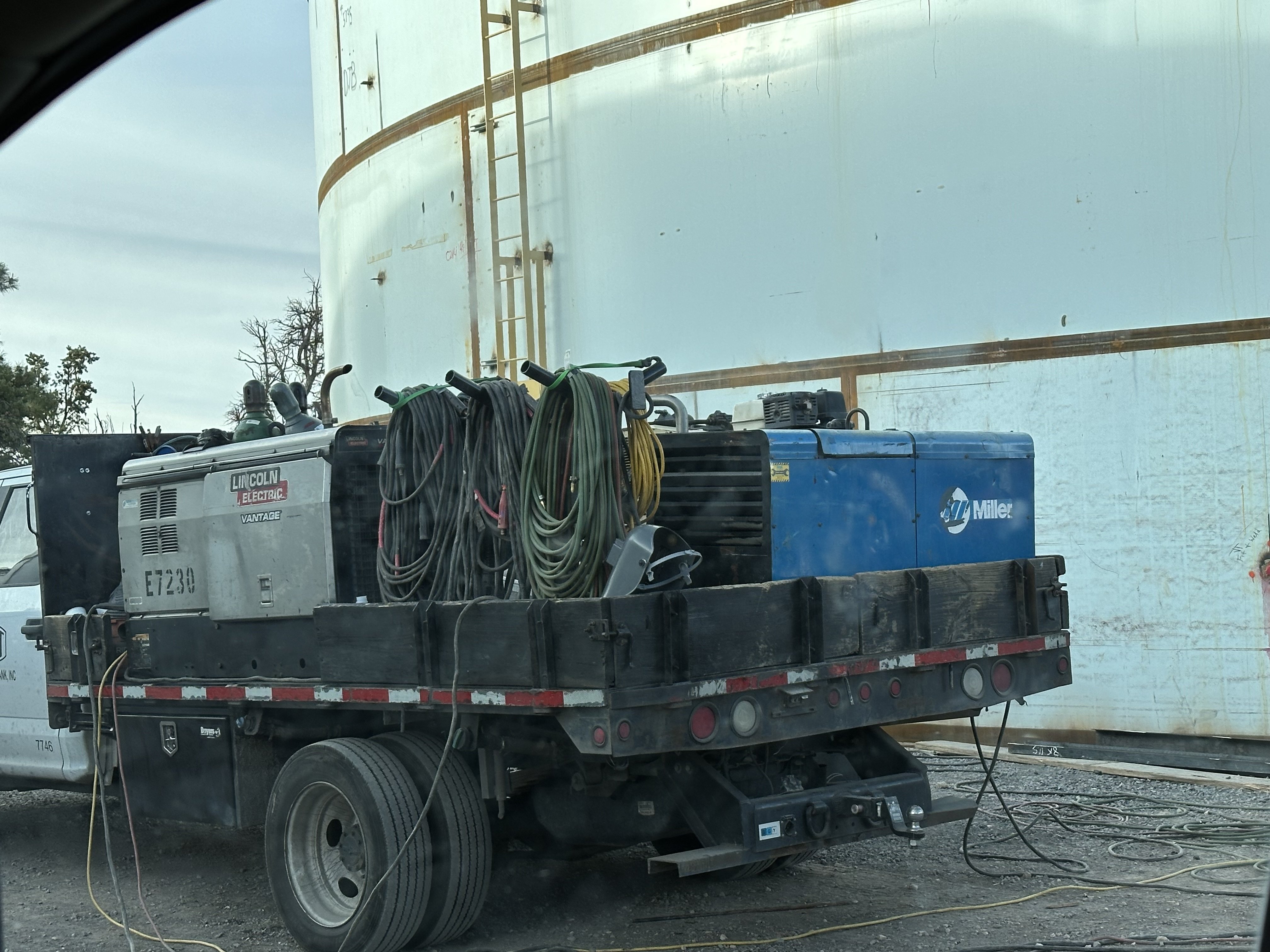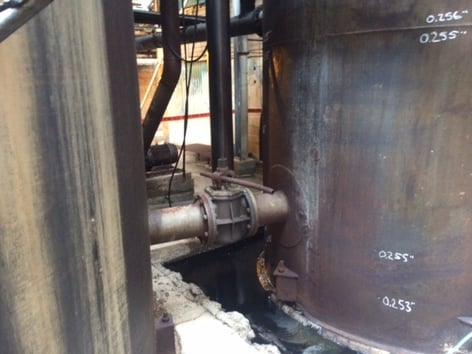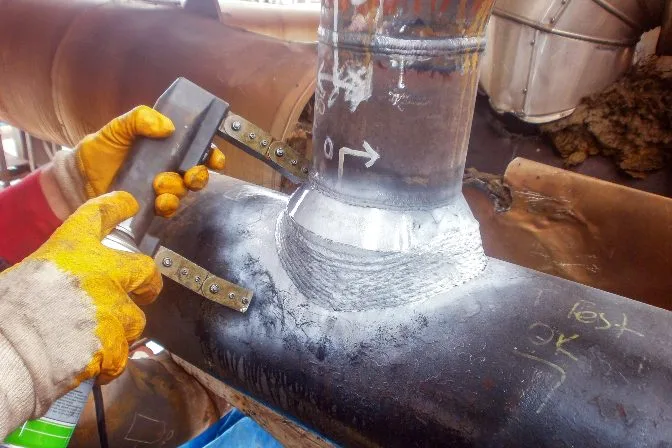The Crucial Duty of Storage Tank Welding Evaluation in Ensuring Structural Integrity and Security Compliance in Industrial Applications
In the world of industrial applications, storage tank welding examination emerges as a pivotal aspect in safeguarding structural honesty and guaranteeing conformity with safety policies. Using a mix of techniques such as aesthetic assessments and advanced testing techniques, these examinations serve to identify and reduce possible defects prior to they escalate into considerable risks.
Value of Tank Welding Evaluation

Making sure conformity with market requirements and guidelines is another significant aspect of container welding assessment. Governing bodies mandate strict standards for the building and maintenance of tank, and detailed examinations assist organizations adhere to these needs. Non-compliance can cause serious penalties, consisting of penalties and shutdowns, better stressing the demand for extensive inspection methods.
In addition, container welding assessment plays an important role in keeping operational effectiveness. Regular analyses can determine potential issues prior to they escalate, promoting timely repairs and decreasing downtime. This aggressive technique not only boosts security yet additionally adds to set you back financial savings in the long run. In summary, the importance of container welding examination depends on its capacity to secure public health and wellness, protect the environment, and guarantee conformity with regulative frameworks.
Trick Assessment Strategies
Reliable container welding examination relies upon a variety of key techniques that guarantee extensive assessment of weld high quality and structural honesty. Amongst one of the most widespread methods are aesthetic examination, ultrasonic screening, radiographic screening, and magnetic fragment screening - Tank Welding Inspection. Each technique uses one-of-a-kind benefits in examining various elements of the weld
Visual inspection functions as the very first line of defense, allowing inspectors to recognize surface area flaws, abnormalities, or inconsistencies in the weld grain. Ultrasonic screening employs high-frequency acoustic waves to identify inner problems, such as fractures or spaces, offering a comprehensive assessment of weld honesty. This technique is especially effective in detecting concerns that might not show up externally.
Radiographic screening uses X-rays or gamma rays to produce pictures of the welds, disclosing inner suspensions and providing a permanent record for future reference. This strategy is very reliable for important applications where the danger of failure have to be reduced.
Lastly, magnetic bit screening is utilized to recognize surface area and near-surface flaws in ferromagnetic materials. By applying magnetic fields and great iron particles, examiners can determine interruptions that might jeopardize the structural stability of the container. Together, these strategies form a robust structure for guaranteeing high-grade welds in industrial applications.
Conformity With Safety Specifications

Routine assessments play Recommended Reading a crucial duty in making certain compliance by identifying potential failings or deviations from prescribed standards. Assessors are educated to review weld top quality, validate product requirements, and analyze the total structural honesty of tanks. Their experience is vital in guaranteeing that welding processes satisfy the needed security requirements.
Moreover, conformity with security requirements not only safeguards workers however also safeguards the environment from potential hazards such as leaks or catastrophic failures. Organizations that focus on safety and security conformity are much better placed to minimize dangers, enhance functional performance, and promote a culture of safety and security within their labor force. In summary, keeping strenuous compliance with safety criteria is vital for the successful operation of container welding tasks in commercial settings.
Benefits of Normal Evaluations
Normal examinations are indispensable to preserving the architectural stability and safety and security of welded containers. These assessments provide a systematic approach to identifying possible defects or weak points in the welds, making sure that any kind of problems are dealt with before they intensify right into significant failings. By carrying out routine analyses, organizations can identify rust, fatigue, and other kinds of wear and tear that might endanger storage tank efficiency.
Additionally, constant examinations add to conformity with industry guidelines and standards. Sticking to these guidelines not just mitigates legal threats but likewise improves the company's reputation for security and dependability. Normal assessments cultivate an aggressive safety society, urging workers to identify and focus on the significance of tools integrity.

Study and Real-World Applications
Situation studies and real-world applications highlight the concrete impact of reliable container welding examination practices. One notable instance is a big petrochemical facility that faced considerable operational disruptions due to leakages in tank. Complying with the application of extensive welding examination methods, including aesthetic and ultrasonic screening, the center determined essential problems in weld joints that could have caused catastrophic failings. This proactive approach not just avoided environmental content hazards but also conserved the firm millions in possible clean-up expenses and regulatory fines.
In a similar way, a water therapy plant executed a comprehensive examination program for its storage tank welding operations - Tank Welding Inspection. By including non-destructive testing methods, the plant had the ability to discover early indicators of corrosion and tiredness in weld joints. This prompt intervention prolonged the life-span of the tanks and made sure conformity with safety policies, hence safeguarding public health and wellness
These instance studies highlight the relevance of normal and systematic storage tank welding examinations. By focusing on these methods, sectors can minimize risks, improve architectural stability, and make sure conformity with security requirements, eventually causing enhanced operational efficiency and reduced liabilities.

Verdict
In conclusion, container welding assessment is an important component of keeping structural stability and safety in industrial applications. Using numerous examination methods ensures early discovery of potential problems, thus stopping tragic failures.